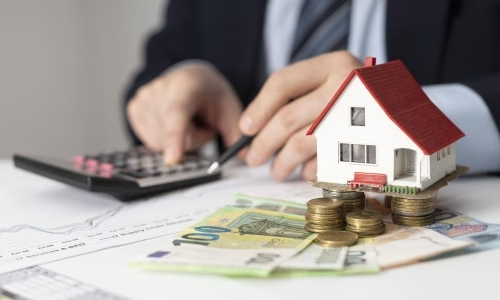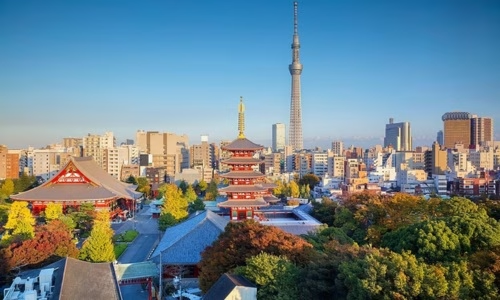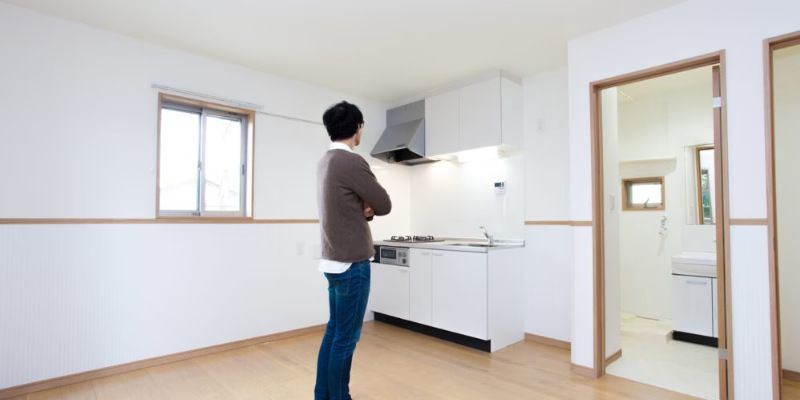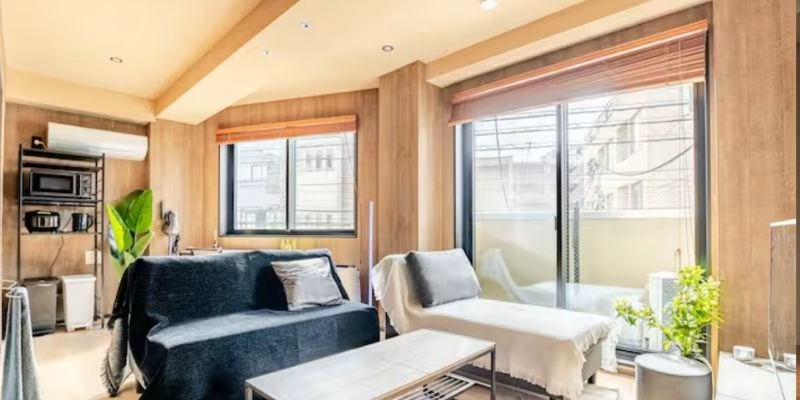Japan’s real estate market continues to attract both domestic and international interest, thanks to its strong legal system, stable economy, and high standard of living. Whether you’re looking to settle down, acquire a second home, or diversify your investment portfolio, Japan offers a wide range of property options with long-term potential.
Why Foreign Buyers Are Choosing Japan
One of the key reasons Japan stands out in Asia is its openness to foreign ownership. Unlike in some countries, non-citizens are allowed to purchase and fully own real estate in Japan without requiring permanent residency or citizenship. Combined with a low-interest-rate environment and the Japanese yen trading at historically favorable levels for foreign currencies, this creates a unique window of opportunity.
Furthermore, Japan is known for its world-class public infrastructure, reliable transport systems, and safe urban environments. These factors make it an attractive location not only for living but also for long-term real estate investment.

Exploring Japan’s Housing Landscape
The Japan housing market is generally divided into two primary ownership categories: freehold (land ownership) and leasehold. With freehold, buyers gain full rights to both the building and the land it sits on. Leasehold properties, on the other hand, provide rights to the structure but not the underlying land, and typically come with fixed-term agreements.
In densely populated urban centers such as Tokyo, Yokohama, and Osaka, the market is dominated by condominiums and apartment complexes due to limited land availability. These buildings often offer modern amenities, security, and convenient access to public transportation. In contrast, detached houses are more frequently found in suburban neighborhoods and rural areas, where land is more affordable and space is not as constrained.
One unique characteristic of the Japanese real estate market is the depreciation of building structures over time. Older homes, especially those built several decades ago, may lose value quickly due to outdated designs or construction standards. However, the land itself often retains or even appreciates in value, especially if it is located near train stations, schools, or commercial zones.
Because of this, location plays a central role in determining both the current value and future resale potential of a property. Buyers evaluating opportunities in the Japan real estate market should carefully consider the long-term desirability of the area, including population trends, development plans, and access to essential services.

Top Places to Purchase Property in Japan
When exploring the Japan real estate market, location is everything. Different cities offer distinct advantages depending on whether you’re purchasing for personal use or investment. Below are some of the most attractive urban areas to consider, each offering a unique mix of lifestyle, value, and growth potential:
- Tokyo: Japan’s capital offers a vibrant property market with high demand and a wide selection of apartments. Buying apartment in Tokyo grants access to world-class amenities, international schools, and strong resale potential.
- Osaka: Known for its dynamic economy and lower entry prices, Osaka provides excellent rental yields and is popular among investors seeking a balance of affordability and return.
- Kyoto: With cultural significance and limited new construction, Kyoto’s property values remain stable, especially in heritage zones.
- Fukuoka & Sapporo: These growing cities offer modern infrastructure, expanding job markets, and relatively affordable housing. They’re ideal for those seeking value and future growth.
Types of Properties Available
Japan offers a diverse range of property types suited to various preferences, living situations, and budgets. Whether you’re buying for personal use or long-term investment, it’s important to understand what each type provides:
- Urban apartments: These are typically found in city centers and come in configurations like 1LDK to 3LDK. They’re best suited for working professionals, couples, or small families who prioritize convenience, access to transportation, and proximity to business hubs.
- Detached houses: More common in suburban neighborhoods, these homes provide more living space, greater privacy, and often include ownership of the underlying land. They appeal to families looking for long-term residence with room to grow.
- Condominiums: Popular among both local and foreign buyers, condos feature shared amenities such as gyms, lounges, and security services. They usually come with monthly management fees and are ideal for those who prefer low-maintenance living with modern comforts.
- Traditional Japanese houses (kominka): These older, often rural properties feature wooden architecture, sliding doors, and tatami rooms. They’re best for buyers seeking a cultural experience, vacation retreat, or renovation project.
Each property type in the Japan housing market aligns with specific lifestyle needs and financial goals, so it’s important to match your choice with your intended use and long-term plans.
Who Can Buy Property in Japan?
International buyers are welcome in Japan’s property market and are permitted to acquire real estate without the need for Japanese citizenship or permanent residency status. Ownership rights for foreigners are nearly identical to those granted to local residents, making Japan one of the more accessible countries in Asia for overseas property acquisition.
That said, if you’re planning to finance your purchase through a Japanese lender, additional requirements may apply. Most financial institutions assess a range of factors, including the type of visa you hold, your employment situation, and whether your income is based in Japan or abroad. Having long-term residency, a stable job, or a proven income stream can significantly improve your chances of mortgage approval.
Japan Property Prices: 2025 Snapshot
Property costs in Japan can differ significantly depending on the location and nature of the asset. Urban centers like Tokyo generally command higher prices, while rural regions and smaller cities offer more affordable entry points for homebuyers and investors alike. Here’s a general overview of average market prices in 2025:
Location | Avg. Price (USD/m²) |
Central Tokyo | $8,000 – $15,000 |
Suburban Tokyo | $3,500 – $6,000 |
Osaka | $2,500 – $5,000 |
Rural areas | $500 – $2,000 |
Among all regions, Tokyo continues to lead with the highest property values, reflecting its status as the country’s economic and cultural core. Central wards such as Minato, Chiyoda, and Shibuya often see premium pricing due to limited supply and high demand.
Meanwhile, suburban zones around Tokyo and cities like Osaka offer significantly lower price points, making them attractive alternatives for first-time buyers or investors seeking better yields. In regional areas, especially in the countryside, homes and land are often more spacious and budget-friendly, appealing to those looking for second homes or long-term rural living.
With a wide spectrum of property prices across the nation, buyers can explore options that align with their budget and investment goals, whether it’s a luxury apartment in the heart of Tokyo or a traditional house in a quiet town.
Step-by-Step Guide to Buying Apartment in Japan
Navigating the property buying process in Japan can seem complex at first glance, but it follows a logical and efficient structure. Whether you’re a resident or an overseas buyer, understanding each stage of the journey will help you avoid pitfalls and make informed decisions. The key phases are detailed below:
- Search for a property: Begin by working with a bilingual real estate agent who understands the needs of foreign buyers. They can guide you through listings, provide insights into the local market, and arrange property viewings that align with your criteria.
- Negotiate and sign the contract: Once you’ve selected a suitable property, your agent will help you negotiate terms with the seller. After reaching an agreement, you’ll sign a legally binding purchase contract and typically provide a deposit of 5–10% of the property’s price.
- Due diligence: This phase involves verifying property ownership, reviewing legal documents, checking for outstanding taxes, and evaluating the structural integrity of the home. A licensed judicial scrivener (shihō shoshi) or lawyer can assist with this crucial step to ensure everything is in order.
- Final payment and registration: After all checks are complete, you’ll proceed with the final payment. The ownership transfer is then registered at the Legal Affairs Bureau, making your purchase official.
- Pay taxes and fees: New property owners are responsible for various costs including acquisition tax, stamp duty, legal fees, and registration charges. These should be budgeted in advance to avoid surprises.
How Foreigners Can Finance Property in Japan
Many Japanese banks offer mortgage loans to foreigners under certain conditions:
- Holding a valid long-term visa or permanent residency
- Demonstrating stable income (local or overseas)
- Providing a Japanese guarantor or down payment (10% to 30%)
Interest rates typically range between 1% and 2%, and loan terms can extend up to 35 years. Buying apartment in Japan with financing is now more accessible than ever, especially for residents with stable jobs.
Is Japan Real Estate a Smart Investment?
From a long-term perspective, real estate in Japan can be a valuable asset. While property values in some regions may decline due to population shifts, locations with strong job markets and infrastructure continue to perform well.
Rental demand in Tokyo, Osaka, and Fukuoka remains solid, offering yields that appeal to international investors. The combination of low borrowing costs, favorable exchange rates, and strong legal protections makes the Japan real estate market especially attractive in 2025.
Post-Purchase: What to Expect
After you’ve completed the purchase, there are several important follow-up steps to take as a new property owner in Japan:
- Register property ownership: The final transaction must be officially recorded at the Legal Affairs Bureau (法務局) to establish legal ownership. This is typically handled by a judicial scrivener and is essential to validate your rights over the property.
- Connect utilities and insurance: Arrange for the transfer or initiation of water, gas, electricity, and internet services under your name. At the same time, it’s advisable to purchase property insurance to cover risks such as fire, earthquake, and liability.
- Pay annual fixed-asset taxes: All property owners in Japan are required to pay fixed-asset tax (固定資産税) and city planning tax (都市計画税), which are assessed annually based on the property’s appraised value.
- Learn and follow building rules: If your new home is in a condominium or apartment building, you’ll need to understand and comply with management bylaws. These often include policies on noise, renovations, garbage disposal, and use of shared spaces.
- Consider hiring property management: For those purchasing as an investment or living abroad, employing a professional property manager can help with tenant relations, rent collection, and maintenance. This ensures your investment remains hassle-free while maintaining long-term value.
Conclusion
With strong legal protections, open policies for foreign buyers, and a variety of housing options, the Japan real estate market offers a unique opportunity. Whether you’re buying apartment in Tokyo or looking at investment potential in regional cities, now may be the ideal time to explore what Japan has to offer.






Leave a Reply